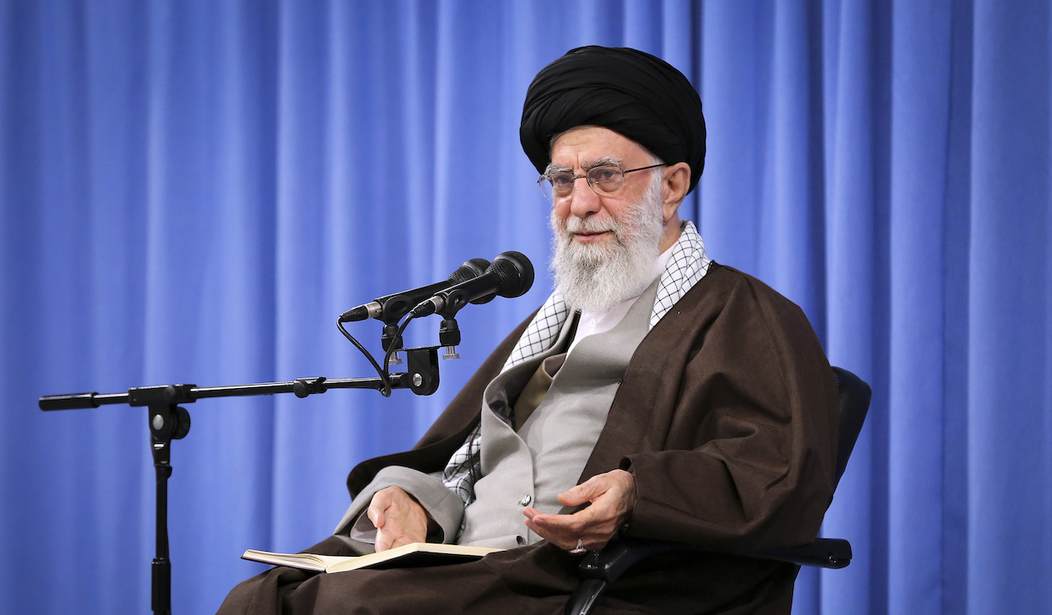Message delivered. Message received? It certainly appears that way ... for now.
Last night, Israel defied Joe Biden's "Don't II: Craven Boogaloo" advice and hit an airbase near Isfahan, as Jazz wrote a short time ago. Initial reports made it appear that Israel had opted for the nuclear option, as in 'hitting all the identified nuclear sites in Iran.' Instead, Israel opted for a 'proof of concept' model, demonstrating that they could penetrate Iranian air defenses at will.
That demonstration has apparently convinced the Iranians to back down. Not only are they signaling that they won't respond, they're claiming that the Israelis weren't there in the first place:
Iranian media and officials described a small number of explosions, which they said resulted from Iran's air defenses hitting three drones over the city of Isfahan. Notably, they referred to the incident as an attack by "infiltrators," rather than by Israel, obviating the need for retaliation.
An Iranian official told Reuters there were no plans to respond against Israel for the incident.
"The foreign source of the incident has not been confirmed. We have not received any external attack, and the discussion leans more towards infiltration than attack," the official said.
Uh ... sure, pal. Even if that were the case, it would be a humiliation to the mullahs. They launched well over 300 missiles and drones in their first-ever attack on Israel and only a handful made it through regional defenses, doing minimal damage. A couple of "infiltrators" managed to surprise Iran badly enough to damage their key air base and frighten the regime enough to ground all air traffic?
Well ... that's better than admitting that they're vulnerable to even a casual Israeli military attack. But even if they're not admitting it, they certainly know it now -- and know how bad it could have been:
Sources have confirmed to the Jerusalem Post that the attack on Iran at Isfahan, attributed by sources in the New York Times to Israel, hit Iranian air force assets at Isfahan, almost right next door to the Islamic Republic's nuclear site in the same area.
The message was unmistakable, 'we chose not to hit your nuclear sites this time, but we could have done worse right here,' sources told the Post.
In other words, the attack at Isfahan was designed not only to hurt Iran but also to make it eminently clear how vulnerable to attack its nuclear sites are.
Long-range missiles from aircraft were used to avoid Tehran's radar detection capabilities.
Did the Iranians miss the aircraft in targeting range of Isfahan, which is almost at the dead center of their country? Hmmm.
Of course, they can afford to present the 'infiltrator' narrative because the small scale of this 'proof of concept' attack makes that possible. If Israel had chosen a large-scale attack on Iran's nuclear facilities and military infrastructure, there would have been no hiding it, not even in a tightly controlled society like Iran. And given the current mood of the suffering Iranians, it would not have likely produced a patriotic rally effect for the mullahs, but demands to overthrow the regime before they start a war that would kill many of them.
Better to run with the "infiltrators" excuse than to admit that the IRGC isn't omnipotent. That narrative allows Iran to back out of this staredown with Israel without losing too much face. It might even give them a pretext to roll up dissenters as part of the supposed "infiltration."
But what this also means is that Iran will go back to its previous doctrine: using proxies rather than challenging Israel directly. The next attempt to do the latter will get met with a much less limited response, and the mullahs know it. Given the quality of Israeli intelligence targeting IRGC commanders working with their proxies, the Iranians will probably pull back that level of coordination for a while, too.
That won't be good news for Hamas and Hezbollah, groups currently tangling with Israel and not faring well for it in either theater. Hezbollah isn't faring as badly as Hamas, however, who are desperate for some way to force Israel into retreat. They're so desperate that they are contradicting the mullahs' narrative, calling the Israeli strikes an "escalation" -- the very word that the Iranians are trying to avoid today:
Israel’s “aggression” on Iran is an escalation against the region, senior Hamas official Sami Abu Zuhri tells Reuters amid reports of an Israeli drone strike at an Iranian military site.
Ixnay on the escalation-ay, Tehran may be saying at this point, but Hamas needs that threat of escalation to survive.
Don't be surprised if Hamas suddenly tries to signal small concessions in the cease-fire talks to stall a little more. But that ploy has just about exhausted itself, too. This week, Qatar openly threatened to end its mediation over stall tactics; while they didn't identify the party employing them, no one really doubts who they mean. The Iranian attack was meant to break that deadlock in Hamas' favor, but that tactic has actually backfired, leaving Hamas in worse position than ever.
If Israel has put Iran back in its box for the duration of this war, then no one will be riding to Hamas' rescue in Rafah. And if Israel ignored Joe Biden on rolling the dice with Tehran, then Biden's leverage with Israel is all but tapped out, especially in relation to Hamas and Rafah.
The Israelis now have a clear path to finish off Hamas; let's see if they take it.








Join the conversation as a VIP Member